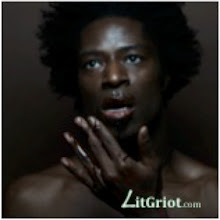I recall my first trip to Paris. I sat alone in a regional train compartment from Strasbourg to Paris Gare du Nord. I quickly bonded with the two young ladies in the compartment, as the three of us were bopping our heads, listening to our portable cassette tape players. We bonded over Hip-Hop, and they broke me to Parisian Hip-Hop slang, “Just so others don’t know what we’re saying,” one of the young ladies explained.
Upon reaching Paris, I was able to dig much greater into the some parts of the early Hip-Hop scene. Not only were Mc Solaar and plenty of others rapping about sexual escapades, but also many of beats accompanied critical social commentary from the perspective of urban colored and poor. I learned that there were certainly many more rappers and later those who would mix the genre with R&B and Raï.
Hip-Hop was born from the urban poor, in defiance of the lack of self-representation, and despair at ghetto life that had no apparent light at the end of tunnel. I noticed that urban (and semi-urban by American standards) poor throughout Europe embraced Hip-Hop, and true to the form, made it their own. Through Hip-Hop, I learned that Western Europe’s urban poor and colored often lived as communities in despair, marginalized, discriminated against, enraged, yet empowered and defiant. Naturally all of this is renascent of the people and places that gave birth to Hip-Hop- the Black, urban youth in the Bronx and Brooklyn. Then, and apparently now the genre provides a platform for the youth to express their needs, desires, pleasures and affairs. It also provides a platform for critical social commentary in a world that denies and ignores their very existence, pacifying them with all too familiar unfulfilled promises of liberté, egalité and even fraternité. Naturally, a mainstream world sold on that false reality often finds Hip-Hop too harsh of a reality. Nonetheless, upon seeing its popularity amongst urban and sub-urban youth of all hues, the very same mainstream, corporate media commodified the genre, regurgitating capitalist wet dreams of more, more, more.
In Europe, I am proud to see that not only has the beat and youth inspired, re-inventive rhythm of Hip-Hop permeates the continent, so has its origins in defiance. Urban youth lashing out so outrageously against society bears more than the scars of so-called poor education or rearing that failed to discourage violence as a plausible means of expression. Rioting bears the scars of severe, deep seeded social intolerance and systematic Oppression.
Arguably, civil disobedience is dead, or at least should be in contemporary civilized society- having risen so high above this primordial form of expression. Yet, civil disobedience persists the world over, even in the faces of expansive and sophisticated law enforcement or the most tyrannical regimes. Disagreeing with civil disobedience is no excuse to refuse to critically consider the claims of those who perceive themselves as so outcast by the society as to regress to violence. Perhaps the message is that denying one’s humanity through systematic oppression is just as primitive as violence. History begs us to ask why the presence of one inevitably precedes or follows the other. And for these youth, they make clear that their circumstances parallel that of the United States: Their only engagement with government is one of harsh and unjust authoritarianism- a fact that still colors how their civic brethren (i.e. the majority/mainstream folk) view not only the rioting but also Hip-Hop and urban youth culture in general.
* * *
The American model of multiculturalism (first the Melting Pot, then the Salad) has not proven more transparent and less exploitative, despite years of practice and struggle and periodic rise and inevitable fall amongst so-called people of color insofar as access to education, employment, health care and the dignity of access to work. And, as far as the multi-kulti salad:
Can I have Som Tam, a papaya salad from Thailand- extra spicy, Ihsaan style (north-east) and a side of sticky rice. You dig.
mardi, novembre 08, 2005
Inscription à :
Publier les commentaires (Atom)

Aucun commentaire:
Enregistrer un commentaire